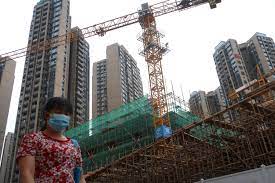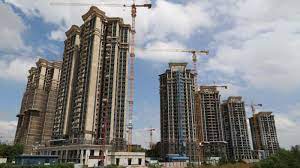Guangzhou, a major city in southern China, has taken a significant step to bolster its property market by completely easing home purchase restrictions for certain individuals on Saturday. The move, aimed at supporting the local real estate sector, comes alongside plans to increase the supply of affordable housing.
According to a notice from the city government, properties with a floor area exceeding 120 square meters (1,292 square feet) are now exempt from housing purchase restrictions. This means that individuals can freely purchase multiple apartments of this size, regardless of whether they already own one or not, as explained by Wang Xiaoqiang, an analyst at Zhuge Real Estate Data Research Centre.

Guangzhou’s decision marks it as the first tier-one city to significantly relax its purchase restriction policy. Wang believes that this move will accelerate the reduction of housing inventory and stimulate activity in the property market.
China is grappling with a severe housing crisis, with numerous debt-ridden developers struggling to complete projects, leading to decreased confidence among potential buyers and weakening one of the economy’s primary growth drivers. Guangzhou, in particular, faces pressure from a large supply of homes, with its housing de-stocking cycle lasting 18.5 months, higher than Shanghai’s 10 months, according to a report from China Real Estate Information Corp.
Despite efforts to stimulate the market, such as easier access to financing for developers and cuts in home mortgage rates, the real estate sector has yet to show signs of stabilization, with sales remaining weak and more developer defaults occurring.
In response to the ongoing challenges, Guangzhou has outlined plans to provide 10,000 units of affordable housing, along with 100,000 units of low-cost rental housing. Additionally, rental subsidies will be offered to 18,000 households, according to the city’s notice.
Chinese policymakers have granted cities full autonomy in real estate regulation and control, allowing them to adjust property policies according to local conditions. This flexibility aims to address the unique challenges faced by different regions in the country’s diverse property market landscape.








